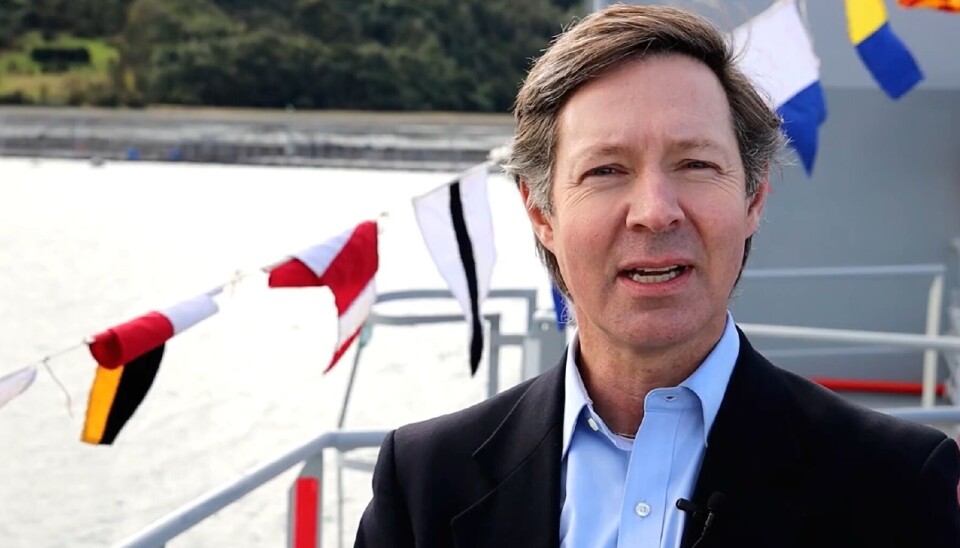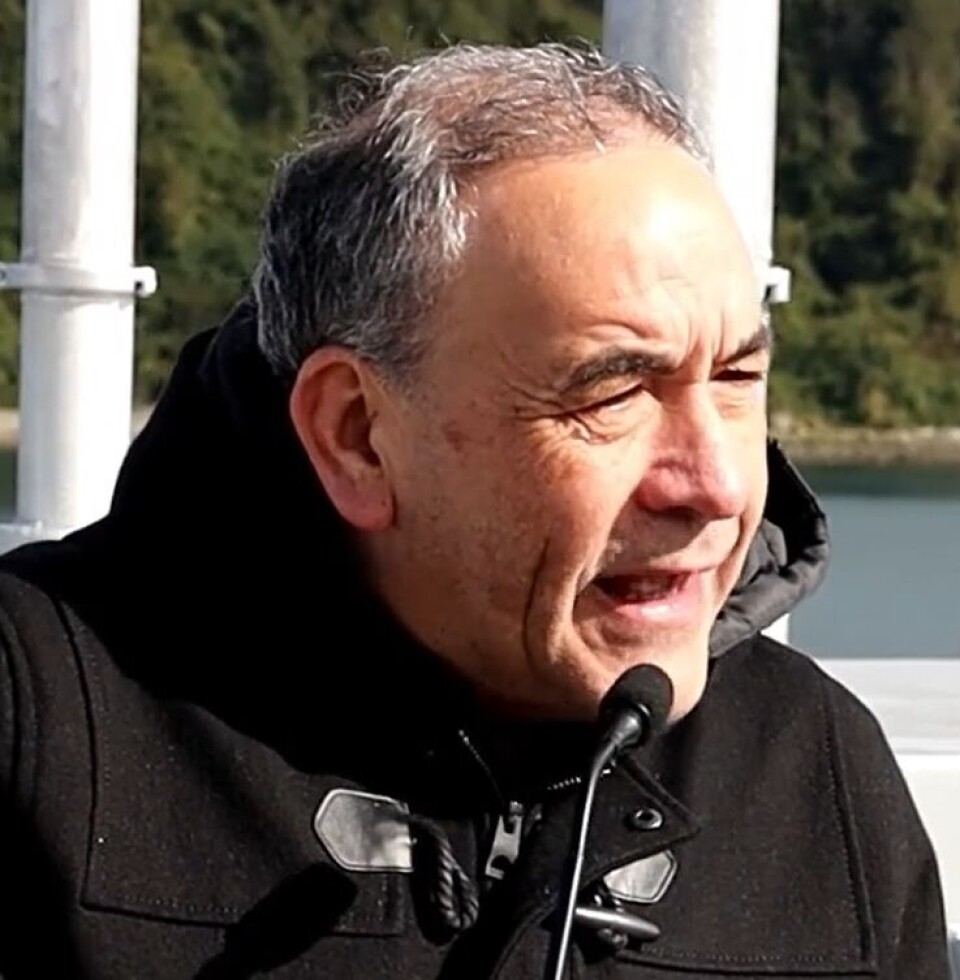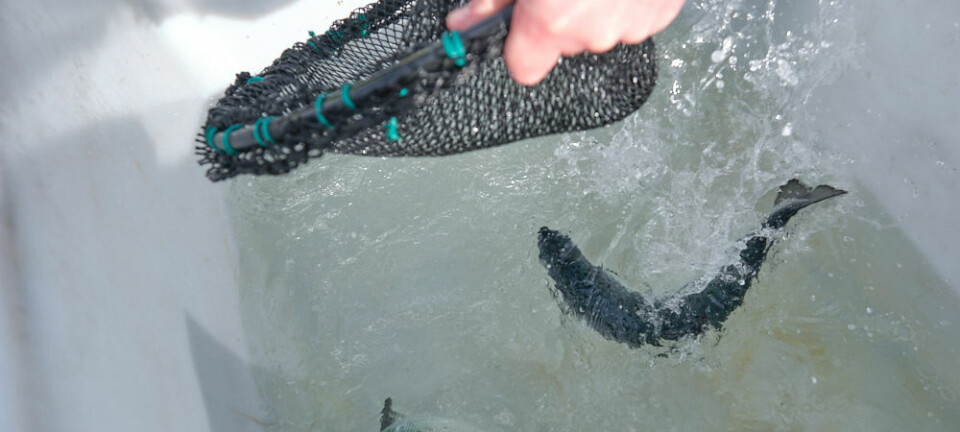
Chile’s first 100% renewably-powered salmon farm switched on
1.2-kilometre cable connection will prevent 427 tonnes of CO2 emissions per farming cycle
Chilean salmon farmer Ventisqueros has become the first in the southern hemisphere to operate a marine farm entirely on renewable electricity after connecting the site to shore power with a 1.2-kilometere under-sea cable.
The cable, sourced from China, runs to the Ventisqueros E-Site farm from the shore at Tubildad, Quemchi Province, on Isla Grande de Chiloé, in Los Lagos region. It reaches a depth of 40 metres and carries a 23,000-volt supply that is stepped down to 400 volts to operate the farm. Power comes from solar and wind generation.
Renewable shore power means the E-Site will not use the 180,000 litres of diesel that would normally be consumed during a 21-month production cycle and will therefore not generate 427 tonnes of CO2 that would otherwise have been emitted.
'Path of sustainability'
At a ceremony to inaugurate the site, Ventisqueros chief executive José Luis Vial said the E-Site was “one more step on the path of sustainability that we hope to be able to replicate in other farms”.
“This fish farm that works based on 100% renewable electricity joins our process plant and administrative offices that already have this clean energy to operate,” added Vial. “Launching this E-Site for Ventisqueros involved years of design, knocking on many doors, the collaboration of many and, above all, conviction; because sometimes, opening paths of innovation costs a lot.”
Vial said the company was looking at using non-conventional renewable energy at other sites but wanted the help of the public sector.
“We are adjusting the studies that would allow us to implement clean energy in three more farm sites. To achieve this, in this southern south of Chile, we still lack infrastructure and therefore we extend an invitation to achieve greater public-private collaboration,” said the executive.

'We must support salmon'
Senator Fidel Espinoza, from Los Lagos region, said: “Any investment that means sustainability is an immeasurable contribution to our future generations. We have to support the salmon industry and demand support from Parliament. Keep going because this is the path and there you will always have us as authorities behind you.”
Quemchi mayor Luis Macías said Ventisqueros had greatly supported social and community organisations, which not all companies did.
“For that, I want to congratulate you. The fact that the Fazenda Foundation, the neighbourhood council, and the sports clubs are here today means a lot. All these things make Ventisqueros stand out from the rest of the other companies,” said Macías.
Ventisqueros, owned by German group Schörghuber Stiftung & Co., grows both Atlantic and Pacific salmon and produces around 45,000 tonnes (whole fish equivalent) annually.























































